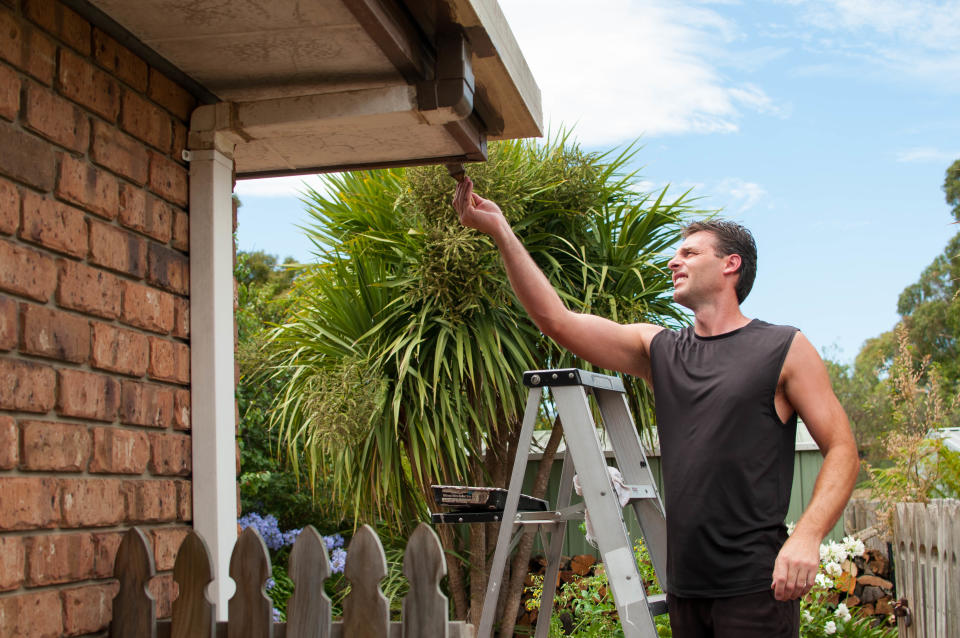Why more Aussies are turning to peer-to-peer loans

The Royal Commission into the banks and financial services unveiled a series of disturbing, infuriating and unsurprising truths.
Australia’s response to the findings could send tremors through the financial services sector as the search for alternatives to the incumbent providers becomes more urgent.
It means peer-to-peer loans – which have already seen significant gains – could become even more prominent in the lending landscape, the CEO of peer-to-peer loan provider SocietyOne, Mark Jones believes.
Society One is an online peer-to-peer loan platform, connecting investors’ funds with borrowers’ needs. The majority of loans SocietyOne writes are personal loans.
Related story: Buy now, pay for it later – the dangers of using providers like Afterpay
Related story: Sephora launches its first-ever credit card
Related story: The stunning collapse of Australian investor home loans, all in one chart
Speaking to Yahoo Finance, Jones said Australians have been resigned to accessing credit from a bank, and the fees and interest rates that come with that.
But now – for a number of reasons – they’re considering the alternatives.
“We did some market research just over six months ago. We were looking at a marketing campaign and we asked some people, “Should we go out with a marketing campaign that says, ‘Don’t go to the big four banks. You can’t trust them?'” Jones said.
“The reality is people trust the big four banks as secure, and they actually trust their local branch manager. They just don’t trust that the banks are going to give them a good deal.”
It’s created an opening that platforms like SocietyOne can exploit.
As Jones noted, the main question from these focus groups was “”Why are you any different?”
“For us, an important part of our business model is that we get money … from mutual banks and high net worth [individuals], and super funds, and we lend to borrowers.
“We can cut out the middleman, because we’re getting the money out of the market and giving straight to borrowers. It keeps our costs low and let’s us lower the cost to customers.”
He argued that the Australian lending landscape hasn’t seen the same level of personal loan saturation seen overseas, as Australians have been easily able to access finance from credit cards or their mortgage.
But borrowing out of a mortgage can lead to interest payments for 30 years, despite a cheaper headline rate, he warned.
And while credit card interest rates might be flexible, they’re generally significantly higher than those attached to a personal loan.
“We’re trying to help people understand the category [of personal and peer-to-peer loans] – that it has a real purpose, and is really a key product for home renovations and even emergencies, trips, weddings,” he said.
“Over time, we’re seeing more and more take up of, “I’ll use a loan to renovate my kitchen” or, “I’ve got a big outgoing for a wedding. I’ll get $20,000 and pay it back over a couple of years.”
“[And] quite often people will say, “Look I’ve actually run up my credit card and I’ve got $20,000 or $30,000, and I want the discipline of paying it off, so I’m going to put it on a personal loan and pay it off over three or five years, and get myself back in order.”
“There’s a real need for them, for the right purpose.”
Staggering growth
Society One reported $64.9 million in loan originations over the three months to March – significantly above the $39.5 million it reported in the same period last year.
And between 2010 and 2018, personal loans’ share of the lending market doubled from 14 per cent to 28 per cent, ABS figures show.
Additionally, in the year to August 2018, borrowing from non-banking institutions grew 10.3 per cent, according to a CommSec insight.
“There are… three things going on,” Jones said.
“The first is that there’s been a step change in technology, so we’ve seen the rise of technology driven lenders, and we can do things faster, simpler, cheaper than the established big banks.
“The second thing is for our business model, people are much happier to look at alternatives in the current environment,” he said, referring to the post-Royal Commission world.
The third element is speed. In an on-demand society, the ability to quickly match a borrower with a loan can’t be understated.
“We can give a person a quote in a minute or two, we can approve a loan in a couple of hours. We can move very fast, and customer feedback to us is that they really like the idea that they can actually figure out whether they qualify before they apply,” Jones said.
Make your money work with Yahoo Finance’s daily newsletter. Sign up here and stay on top of the latest money, property and tech news.

 Yahoo Finance
Yahoo Finance 
